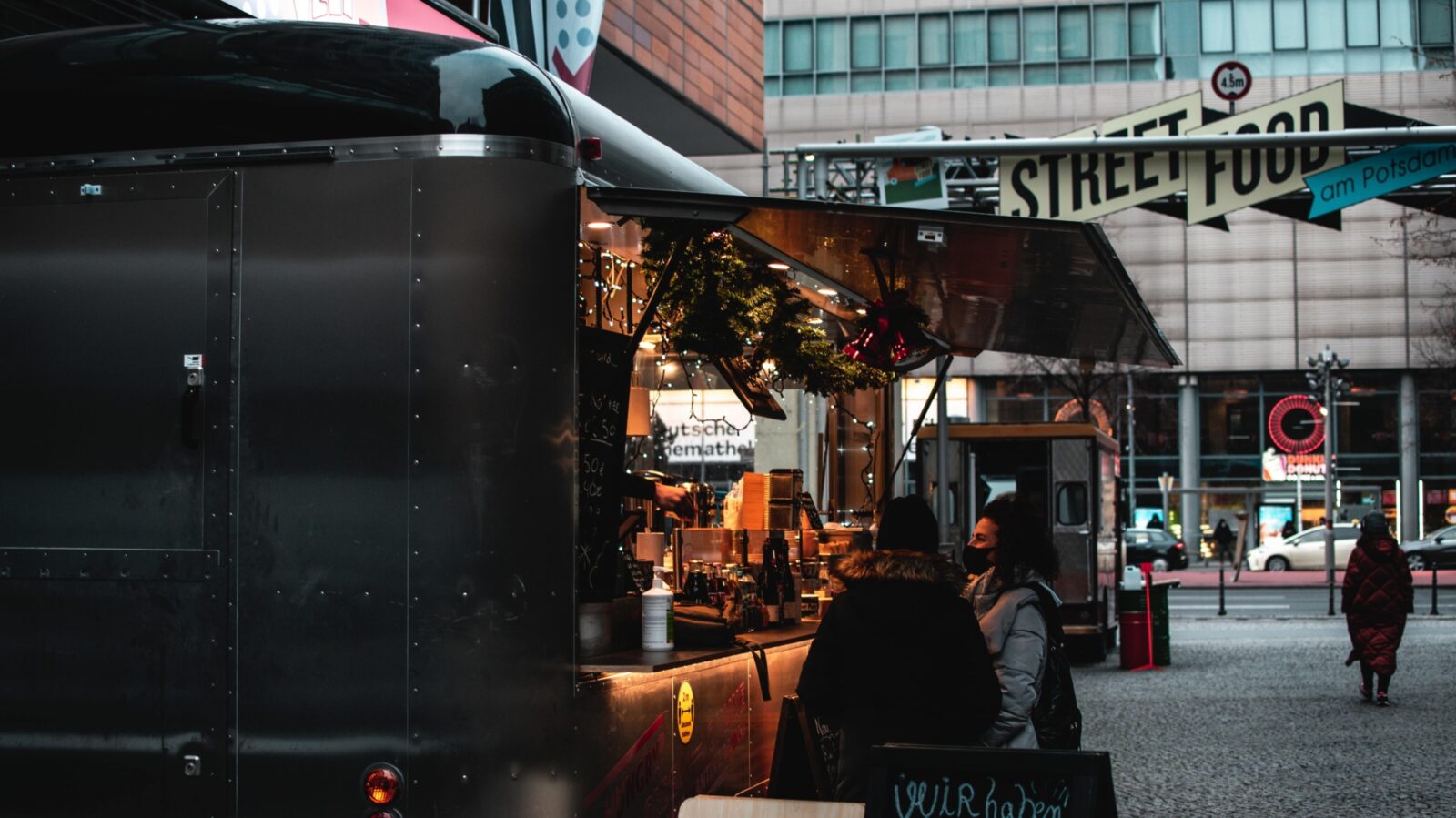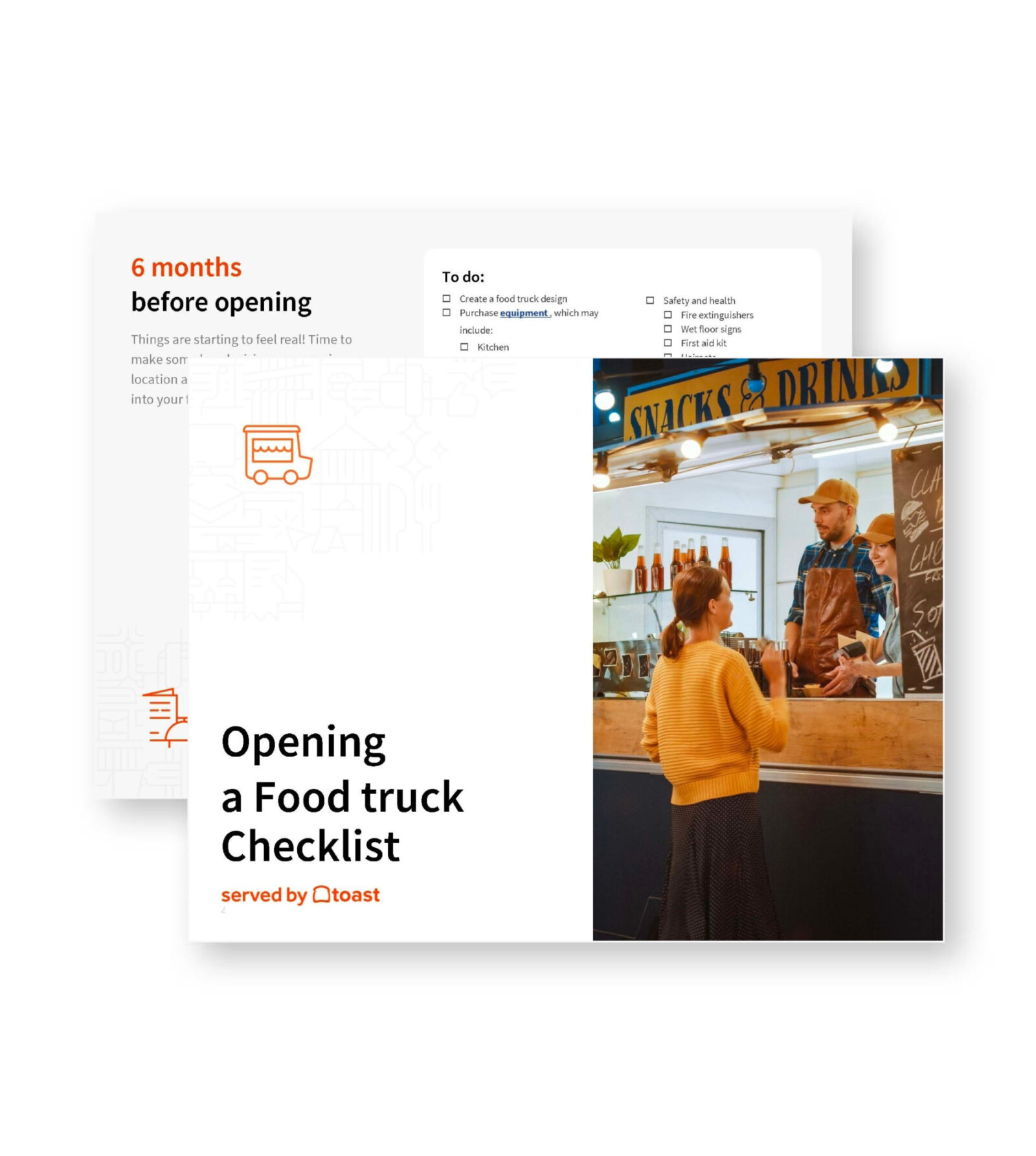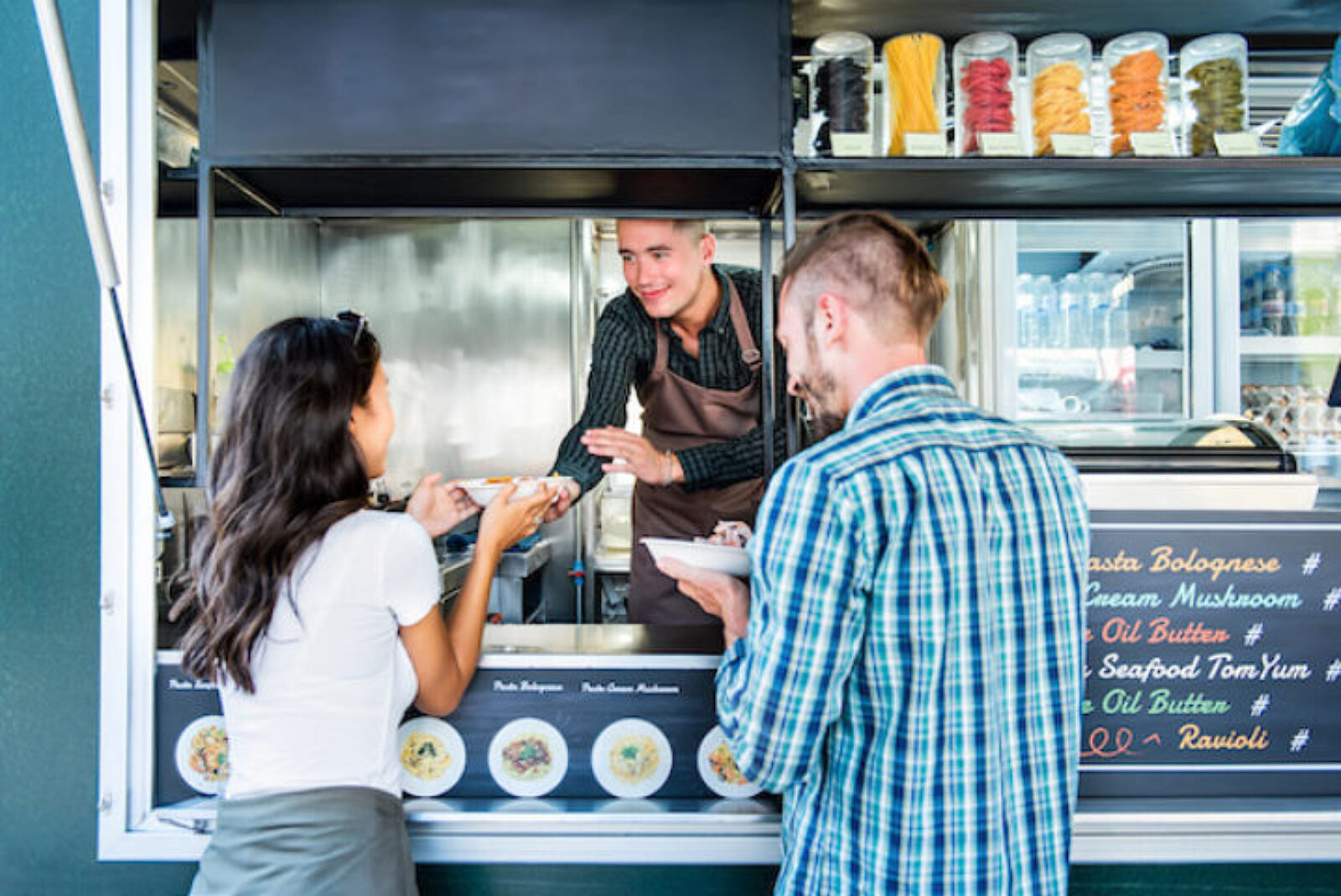
5 Licenses and Permits Food Trucks Need
If you want to operate a food truck, you’ll need several licenses and permits, including a health and parking permit. Here's a list to help you out.

Katherine BoyarskyAuthor


Opening a Food Truck Checklist
So many things go into opening a food truck. With this free PDF checklist, you'll set your new business up for success.
Get free downloadYou’ve got an incredible idea for a food truck business. You’re ready to open your new mobile restaurant and take your culinary vision on the road. All you need to do now is find a truck big enough to hold your ingredients and your dreams, right? Almost! Before you can hit the streets with your food truck you first need to acquire all of the proper licenses and permits.
Due to how ingrained in their environments food trucks are, there is an abundance of regulations that govern every aspect of a food truck's existence. This covers where food trucks are located, the ingredients they carry, and the employees working inside of the trucks, requiring mandatory paperwork to fill out at every turn.
Food Truck Business Plan Template
Use this free food truck business plan template to easily create a great business plan that organizes your vision and helps you start, grow, or raise funding for your food truck.

How much does it cost to operate and maintain a food truck?
To open, maintain, and continually operate a food truck takes an average of 45 annual government-mandated procedures and an estimated $28,276 is spent by food truck owners each year on permits, licenses, and legal compliances alone. While there are a collection of standard licenses and permits that food trucks are required to fulfill to operate, every state and city comes with their own stack of permits that food truck owners are required to obtain especially in large cities that see a lot of food truck traffic every year.
And if you think all of that money and paperwork is deterring food truck owners from launching their businesses, you’d be sorely mistaken. Since food trucks began making their mark on the restaurant industry in 2008, they have been seen in more than 300 US cities and in 2020 there were nearly 24,000 active food trucks in the US.
Like any restaurant fad, the rise in food truck popularity is the result of a growing trend to make dining out more adventurous. But unlike other restaurant fads, the food truck trend doesn’t appear to be fading out of the zeitgeist any time soon. The industry was projected to hit $2.7 billion in 2017 (a 300% increase from 2014) and the growth of the food truck industry has surpassed the growth of the overall commercial restaurant industry at 5.4% compared to 4.3%.
Each year, as the food truck industry continues to expand, it becomes increasingly more clear that food trucks will be a roadside dining staple for years to come. Let’s take a look at the top five permits and licenses required to open and operate a food truck so you can start putting your mobile culinary dreams into effect today.
5 Licenses and Permits Food Trucks Need
1. Business License
AKA your vendor license, this is the baseline requirement for any business to begin operations. Once you obtain the business license required by your city and state the government will begin recognizing you as a legitimate business and start tracking your operation for tax purposes. Depending on your city, the cost of your business license will fluctuate. For example, obtaining a Business License in Boston, MA costs $65 and in New Orleans, LA they can run as high as $150.
To stay on top of your business license be sure to:
Keep track of when your license expires
Become knowledgeable about the license renewal process
Learn if your city limits the amount of mobile food vendor licenses they distribute
Visit the U.S. Small Business Administration website to learn more about your business license
2. EIN (Employer Identification Number)
Think of the EIN as the social security number of your business and depending on your state, this number will be provided when you receive your business license. With this document you will be officially registered as a business in the eyes of the IRS, which is needed before you can open a business account through your bank, start building a credit profile for your company, and begin hiring employees. The best part is, obtaining an EIN is free through the IRS. However, the process typically takes 4 weeks to be finalized so be sure to give yourself plenty of time to apply before your expected opening day.
3. Vehicle License
Because a food truck is ultimately just that— a truck, a valid driver’s license is required to operate it. In most states, a standard driver’s license is all that is needed to operate a food truck. However, some states are more thorough about this step in the process than others and will use the weight and length of your food truck to determine if you are required to obtain a commercial vehicle license instead. To find out what is required in your state, visit your local DMV office or website to start the application process.
Restaurant Health Inspection Checklist
This free checklist gives you all the tips and tricks you need to ace your next inspection.

4. Health Permits
AKA a “food service license” this permit is issued by the health department and will determine whether or not your food truck has passed its health inspection. The process to obtain this permit is more involved than others because it requires a health department agent to come and examine your truck in person in order to determine if it breaks any health code violations. In a typical food truck health inspection the agent will:
Determine if hand-washing facilities are substantial
Check that food is provided by an approved source
Ensure that all food is stored at safe, appropriate temperatures
Verify that there is no opportunity for cross-contamination
Make sure all food is stored and labeled properly
Calibrate your meat thermometers
See if all floors, walls, and surfaces are properly cleaned
During the inspection the agent may also question you and your staff to ensure you are all knowledgeable of food safety best practices. To pass the inspection with flying colors yourself and your employees should take the time to reeducate yourself on all the latest food safety practices in preparation. During the inspection, the agent may ask you questions like:
How are each of the foods stored, cooked, cooled, or reheated?
How do you log food temperatures? And where do you keep your thermometers?
What is your food labeling and storing process?
What is your food washing and cleaning process?
Are there potentially hazardous foods in the truck like eggs or seafood? If so, how do you prepare them safely?
What is your hand washing and glove wearing policy?
Are the managers certified in food safety? How are employees trained in food safety?
If your truck passes the test you’ll receive a letter grade that most cities require to be displayed where customers can easily see it. To schedule an inspection you’ll need to contact your local health department and depending on your city the cost of this permit varies. In Boston, a restaurant health inspection costs$100 and can be as much as $1,000 in other places.
5. Food Handler’s Permit
Once you complete a food handler training and food safety course you will receive your food handler’s permit (AKA food handler’s license). To gain the necessary knowledge to pass your health inspection with flying colors, you may want to take this course before your inspection but it isn’t mandatory.
In most states, only the shift manager is required to obtain this personal permit but the general rule is that at least one employee working each shift has to have this permit. In addition to the food handler’s permit being required to operate a food truck, it also gives your customers some peace of mind about your establishment. When they see the permit (and the health grade) they will feel comfortable ordering from you knowing that the food is being prepared in a safe environment.
As always, this is dependent on the state and city where your food truck is located, but food handler permits are typically valid for 5 years and in most places cost less than $50. To start the process of obtaining yours today, visit the ServSafe website to locate a food handler’s permit testing site in your city.
Gathering all of the necessary permits and licenses is just one step in the journey toward achieving all of your food truck dreams. To familiarize yourself with all of the costs of opening and running a successful food truck, here’s our breakdown: How Much Does a Food Truck Cost to Start.
Related Food Truck Resources
- How Much Does it Cost to Start a Food Truck
- How to Start a Food Truck Business
- Best Food Truck Ideas
- Food Truck POS System
- Food Truck Name Ideas
- Food Truck Equipment
- Food Truck Design Ideas
- Food Truck Websites
- Food Truck Marketing Ideas
- Food Truck Menu Ideas
- How Much Do Food Trucks Make
- How to Do Food Truck Branding
- Food Truck Design Ideas
- How to Write a Food Truck Business Plan
- Food Truck Business Plan Template
- Best Food Truck POS Systems
- Food Truck Supplies
Food Truck POS Comparison Tool
A free, customizable Food Truck POS Comparison Tool to research and compare point of sale systems in one Excel spreadsheet or editable PDF.

Is this article helpful?
DISCLAIMER: This information is provided for general informational purposes only, and publication does not constitute an endorsement. Toast does not warrant the accuracy or completeness of any information, text, graphics, links, or other items contained within this content. Toast does not guarantee you will achieve any specific results if you follow any advice herein. It may be advisable for you to consult with a professional such as a lawyer, accountant, or business advisor for advice specific to your situation.
Read More
Subscribe to On the Line
Sign up to get industry intel, advice, tools, and honest takes from real people tackling their restaurants’ greatest challenges.



